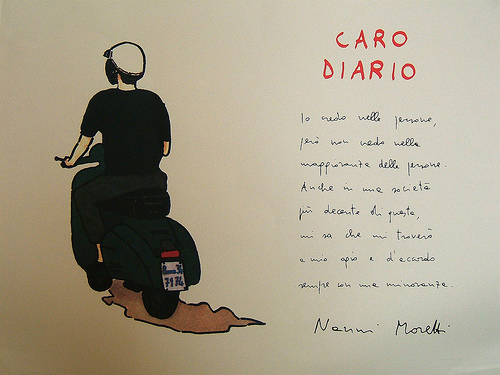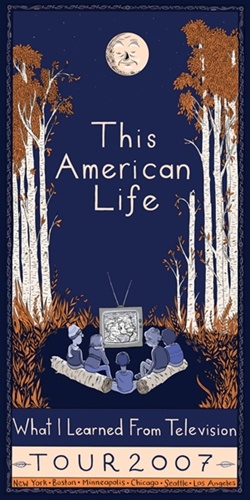You might think I have dropped this project, but you would be SO WRONG. In spite of the fact that I haven't written, I have been exploring the Lenten idea of transformation quite deeply for the last few days. They haven't been easy days, to tell the truth. This exploration is stirring me up. I thought this might be a quirky exercise, something to connect what I do professionally with my personal self, but it is already very much more than that. I have to say, I'm a bit surprised.
A colleague and friend asked me what I meant about being a teacher for social justice. Another friend asked me to help him feel better about the decision he recently made to leave the poor, under served school where he works in New Orleans for a swanky, amazing, private school in a nearby suburb. In my responses to each of these friends, I came closer to answering my own questions about whether I still do the type of work I set out to do when I was that young, idealistic teacher.
What is teaching for social justice? The Chicago-based organization
Teachers for Social Justice describes it this way:
"We are working toward classrooms and schools that are anti-racist, multicultural / multilingual, and grounded in the experiences of our students. We believe that all children should have an academically rigorous education that is both caring and critical, an education that helps students pose critical questions about society and "talk back" to the world."
Teaching for Change says this:
"Teaching for Change operates from the belief that schools can provide students the skills, knowledge and inspiration to be citizens and architects of a better world — or they can fortify the status quo. By drawing direct connections to real world issues, Teaching for Change encourages teachers and students to question and re-think the world inside and outside their classrooms, build a more equitable, multicultural society, and become active global citizens."
It's pretty basic, really. Education is the key, the great equalizer, the way out of a system that tolerates injustice. I became a teacher for social justice after spending time in an elementary school on the south side of Chicago (a poor, violent, under served area) where I met fantastic, curious, eager kids who had to endure clogged and overflowing toilets, teachers who fled midyear, little or no supplies for decent art projects or science experiments, and a system that exploited them in order to justify so-called school reform initiatives that did nothing to improve their educational experience. I became a teacher because I wanted to address this injustice in whatever way I could. (Also because I love school, so much that when I was a little girl I actually had a pretend grade book in which I took attendance and recorded scores for my imaginary students.)
I didn't become a teacher because I'm an expert in world literature, or biology, or political science. In fact, I had no content-area expertise at all. What I wanted to become was a teacher who is an expert in teaching (how am i doing?). How could I help students learn? And more specifically, how could I help students learn when the rest of the world is doing its very best to stop them from becoming educated participants in our society? So I moved to Los Angeles and threw myself into a middle school where most of the students were reading three or more grades below their level. I spent eleven years trying to help kids learn to take control of their own learning. Some of this was in the classroom, some in the library. I wanted them to read well, to read broadly, to question what they read, to share their ideas, and to persist in the face of the great pressure constantly on them, nagging them to just give up.
It was great and it was horrible. You can read more about the great parts
here and
here. Those are the ones worth discussing. The horrible parts are too heartbreaking to mention, at least for now.
 |
my previous school
The plume of smoke is from a titanium fire at a nearby recycling plant.
The explosion nearly resulted in an evacuation of the school. Nice. |
So here's my current question. Do I
still teach for social justice? I think I do, though it's taken me a long time to come to this answer. Over the last three years, I have frequently felt guilty for leaving my post in south LA. Did I abandon those kids? Have I been selfish? Here's what I think now: Our magnificent girls have a chance to change the status quo. As they build lives based on faith, integrity, and truth, they will be able to make choices that impact not only their own lives but the lives of my former students in LA, especially those who don't have a voice or an opportunity to do so. Our girls can change the world if they want, and my role as a teacher for social justice is to give them the tools and the desire to go out and do just that.
I've mentioned that I am not Catholic, but I have to say, I'm a big believer in the
seven principles of Catholic Social Teaching. Solidarity, the dignity of work, option for the poor and vulnerable, and a call to participation - these are principles of social justice work. Before coming to FSHA, I never knew that the Catholics are all about social justice. I just had no idea. Perhaps it is not chance that I landed here, a school that has allowed me to continue my social justice work, but from an entirely new point of view and with an audience I never suspected I'd have the pleasure of addressing.
Ah, transformation. It's right in front of our noses, really.
So where am I in terms of my research? I seem to have strayed from my research questions a bit.
- What has been added to my life since becoming a mother (besides the obvious)? Does each addition result in the subtraction of something, or is it possible to add without taking away?
- What do I want to cultivate? How does my behavior teach my son how to be, and what do I want him to learn?
I can more fully answer Q2 now. I want to pursue my efforts as a teacher for social justice, and to instill in my son those principles. I can cultivate my thoughts on this through my work as well as my personal life. In fact, my work contributes enormously to and strengthens my understanding of social justice. Isn't that cool? How lucky am I?
Back to Q1 for a while then. For my next post, an exploration of physical space and its ability to reflect or absorb one's essence. Sounds deep, right? It's a reaction to visiting a colleague's home for the first time, and discovering that I hate my furniture. More on that later...








